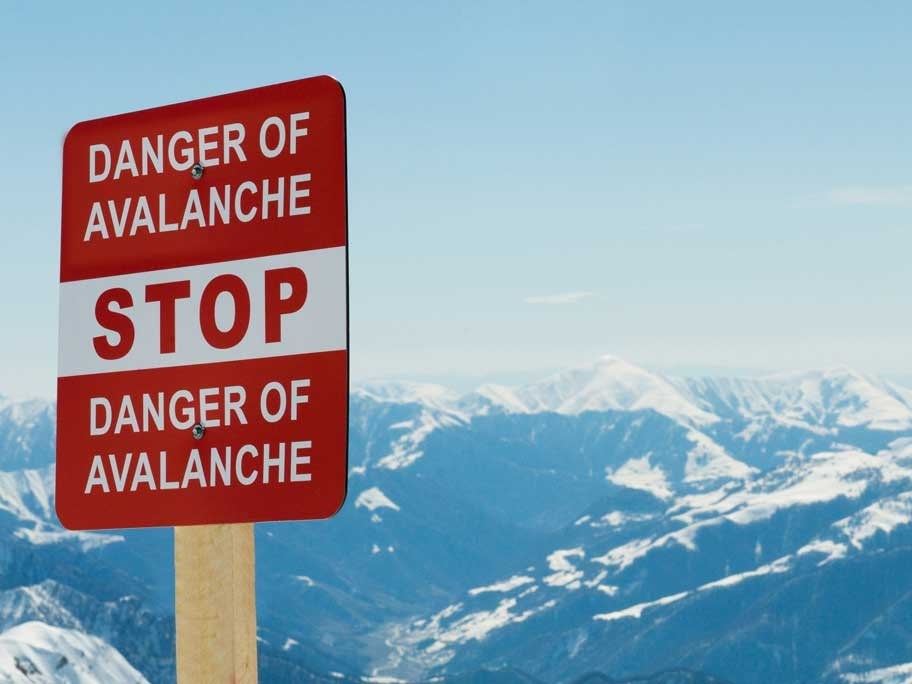Saying that some backcountry travellers have "all the gear and no idea" is a fair statement. Last week the BC Coroners Service in Victoria issued a press release urging backcountry travellers to update their education. While self-rescue equipment is becoming the norm amongst out-of-bounds travellers, many have still not taken sufficient training to use that equipment to its greatest effect.
"Equipment isn't enough, it really comes down to training," said Ian Tomm, Executive Director of the Canadian Avalanche Centre (CAC).
"The technology (with avalanche transceivers) seems to change every year and there's new methods such as strategic shovelling that we just didn't talk about five years ago," he said.
And the message isn't just for the backcountry newbies either. Those who have trained in avalanche skills in years past are probably due for a refresher. The goal of the CAC is to eventually follow the model of CPR and First Aid training, where recurring training in avalanche safety is required every two to three years.
The starting point for every backcountry traveller, whether you ski, snowboard or drive a snowmobile is to take the Avalanche Skills Training (AST) Level 1 course. There are several companies providing AST in Whistler and courses run almost every week during the winter.
"The AST 1 was developed because we were trying to impact behavior and decision making in avalanche terrain," said Mitch Sulkers, AST provider for Whistler Alpine Guides Bureau.
"The idea was to help people gain experience without endangering themselves. (The AST participants) often are very competent riders, very comfortable in the outdoor environment, professionally they may be decision makers such as in business, but making systematic decisions in avalanche terrains is a relatively new thing for them."
New for this season is the Companion Rescue Skills (CRS) course, a one-day field course designed to build on the decision-making skills of the AST Level 1. With a minimum of seven hours in the field, the focus of the CRS course is to update participants on the latest technology (such as modern transceivers and avalanche airbags) and how to apply their rescue skills to different situations such as multiple burials and group rescue. While the AST introduces these subjects over the two and a half days of the course, CRS focuses the specific skills needed for companion rescue in more detail.
The four-day AST Level 2 is the next step for non-professional backcountry travellers with moderate training and experience. While building on the AST 1 foundation, participants learn to gather information about their destinations more efficiently. The most reliable source are the avalanche bulletins, which are written and correlated by industry professionals.
Training in proper communication protocols is also vital. Group communication is key and ranging appropriate meeting points before dropping into the line is essential. This is especially important in treed terrain, where it is easy to lose line of sight with group members.
The resort accessible backcountry around Whistler Blackcomb has surprisingly good cell phone coverage, but no one should assume their phone will work everywhere. Also, cold temperatures can drain batteries quickly. Parties should always tell friends or family where they are going and when they are expecting to return.
Using only common sense rules in the wilderness and making a series of little mistakes can add up to dangerous consequences. Making invalid assumptions can also cost you dearly.
"There's a tendency to follow tracks when traveling through the terrain then looking for an untracked line on the way down. Sometimes it is untracked by experienced tourers for a reason," said Sulkers.
"People don't always test their theories on the safest terrain. With such a community of fine riders, people will often go for the gnarliest line first where the consequences are much more serious."
The three key pieces of equipment needed by every backcountry traveler are a transceiver for locating, a probe for pinpointing and a shovel to excavate the buried victim. Without all three pieces of equipment, the user cannot perform companion rescue.
Shovels and probes are relatively inexpensive costing between $40-60, more for lightweight models. The transceiver is the more costly purchase of the three, starting at $315. Any transceiver you choose to buy should be three-antenna digital, favored for their ease of use for locating and ability to transmit its signal in three special directions. Older single and double antenna transceivers need significantly more training to be used efficiently, but the good news is that they are slowly being phased out and being replaced with affordable modern technology. Whether you are ducking a boundary rope to sneak a side country lap or heading out for a multi-day mission, all the self-rescue equipment should be coming with you.
AST 1 courses start at $225 and are offered by Whistler Alpine Guides Bureau and Coast Mountain Guides. Both companies are currently organizing dates and prices for CRS courses and can be contacted for more information.
Canadian Snowmobile Adventures offers the AST 1 on snowmobile.




